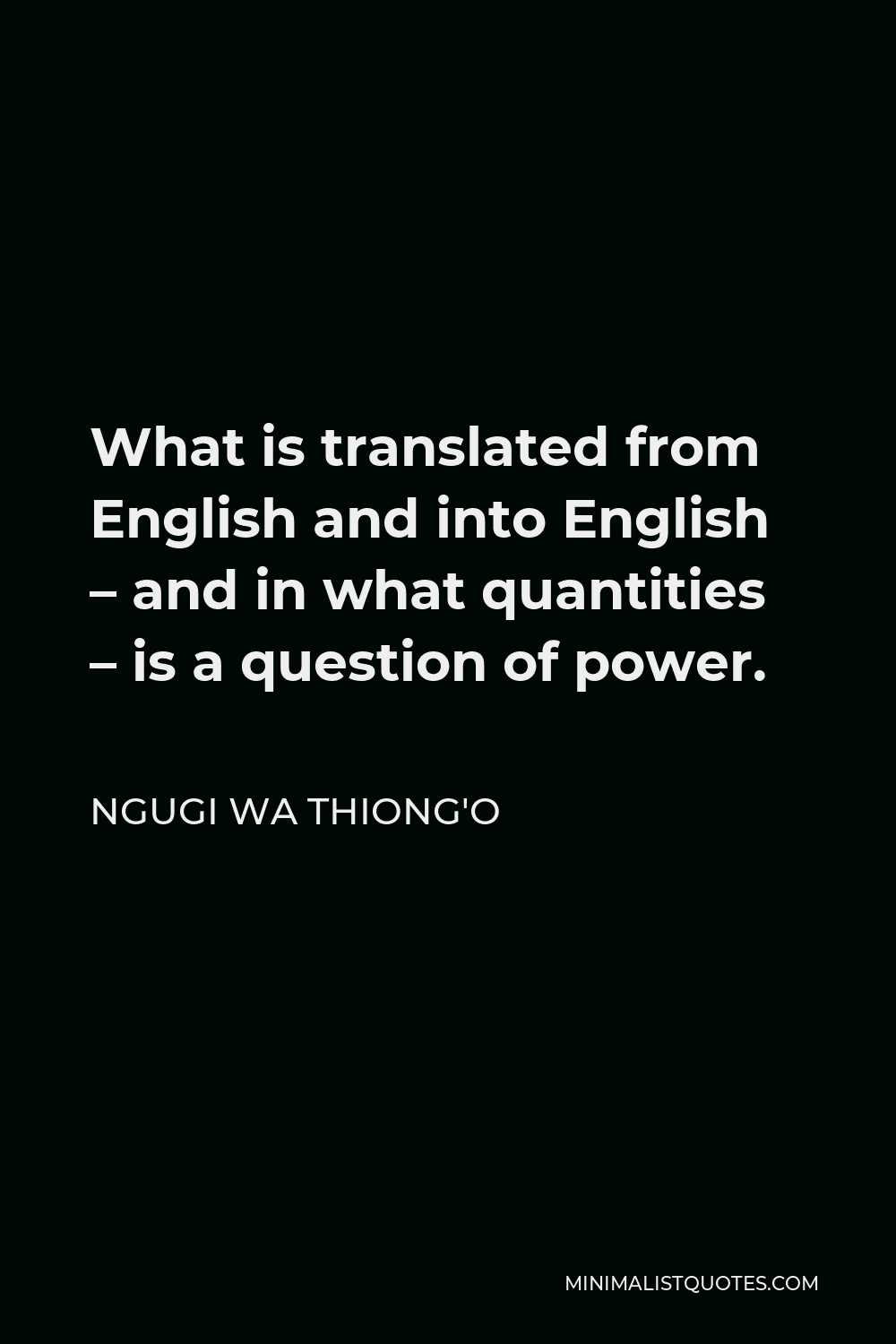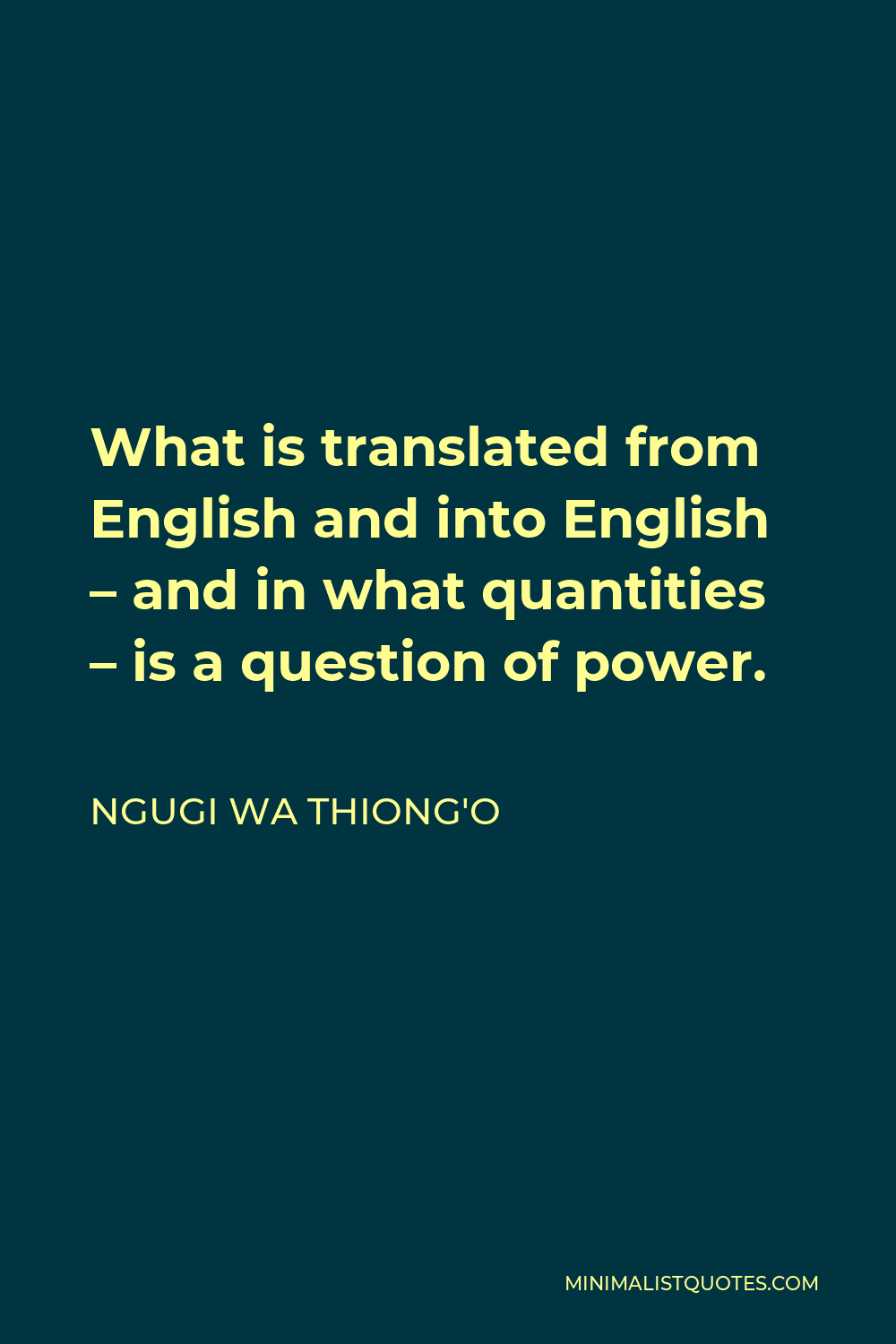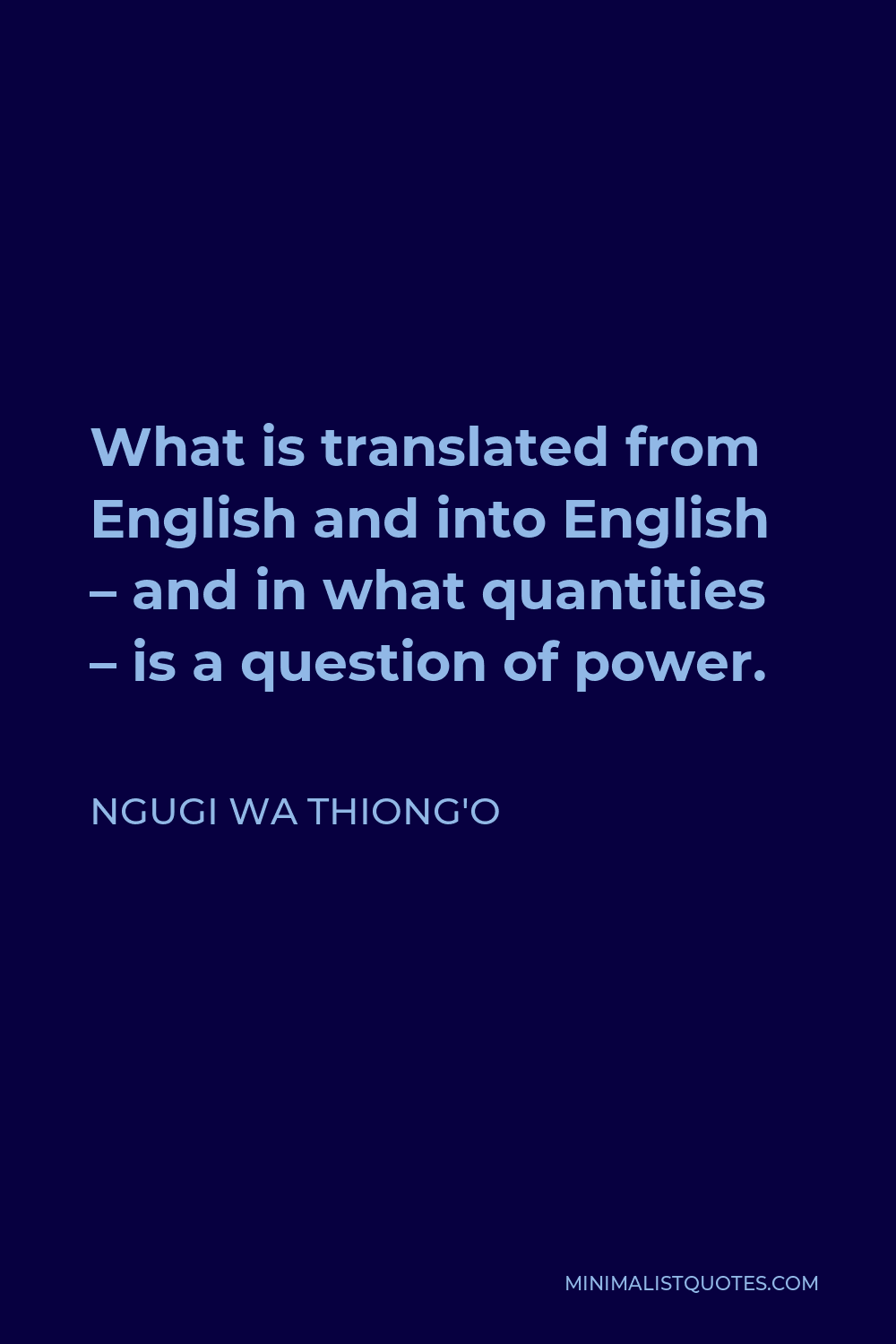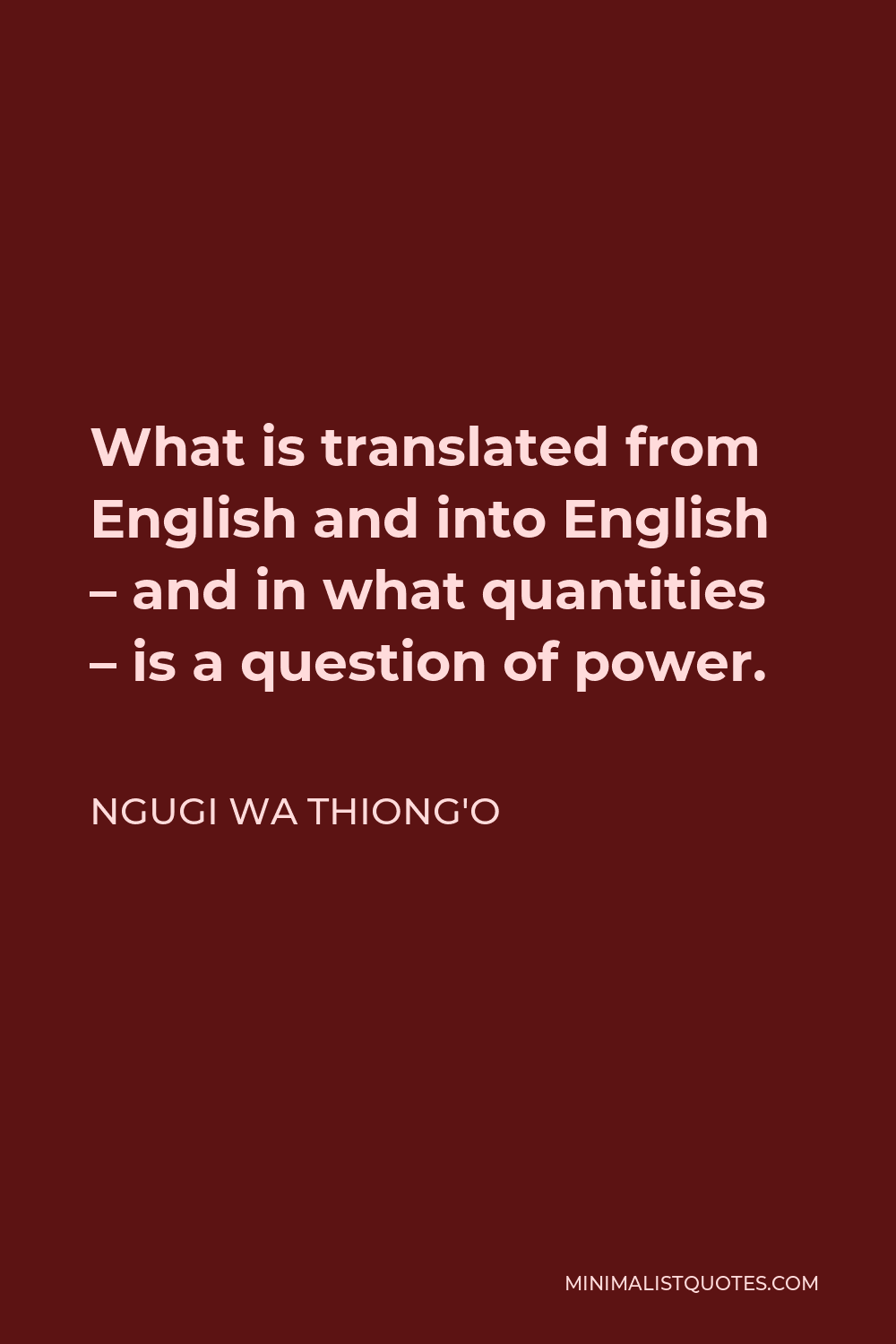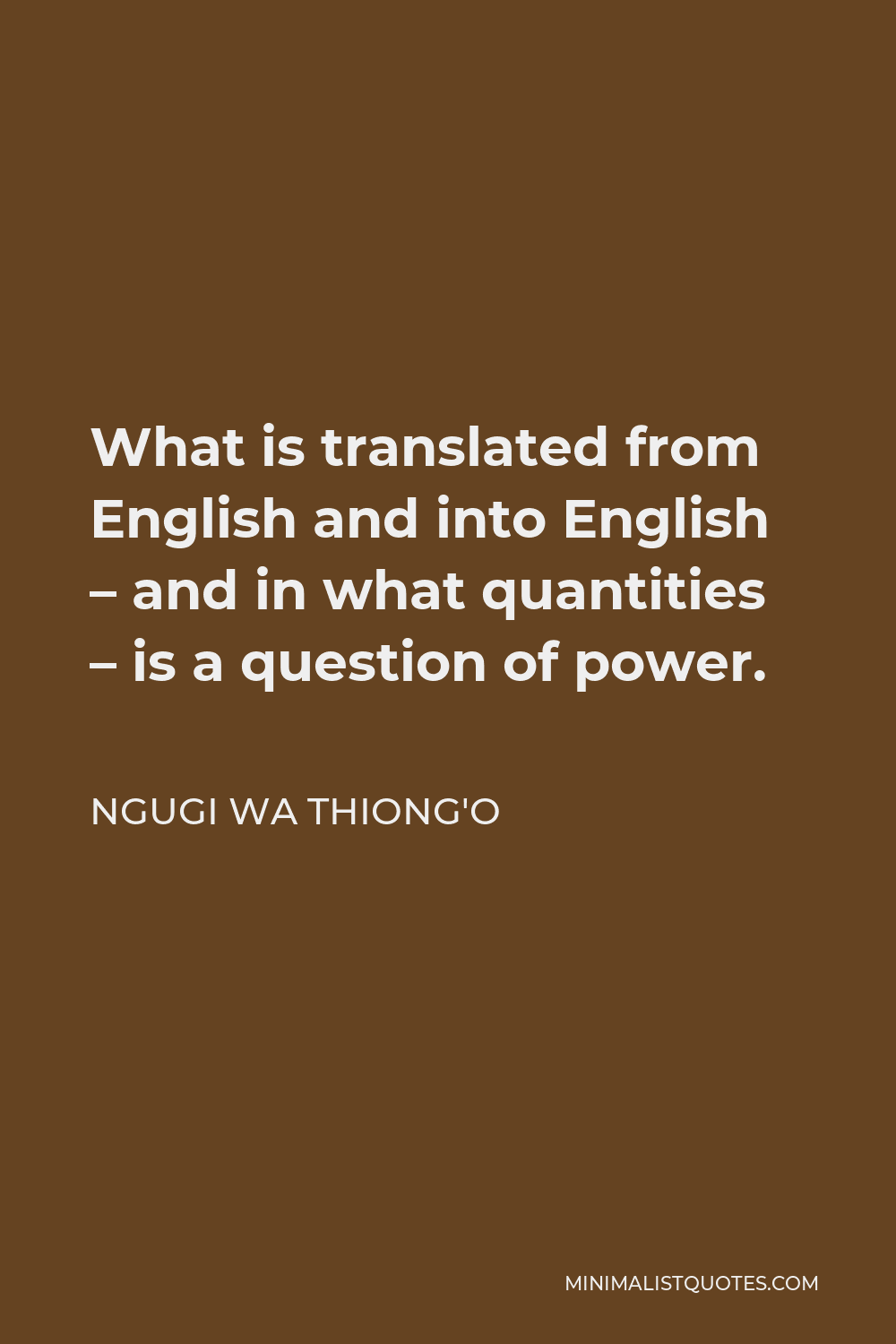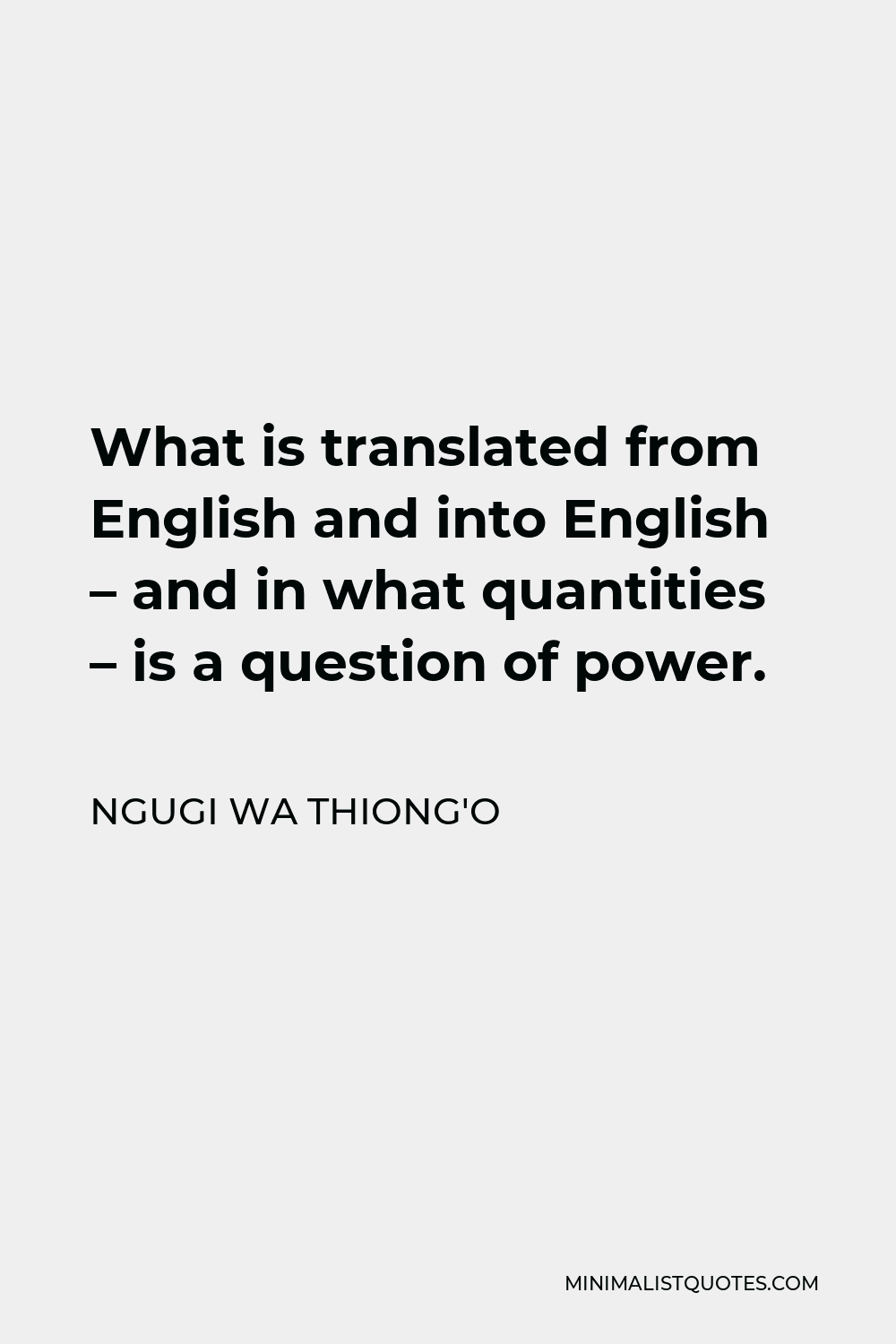Our lives are a battlefield on which is fought a continuous war between the forces that are pledged to confirm our humanity and those determined to dismantle it.
NGUGI WA THIONG'OWhat is translated from English and into English – and in what quantities – is a question of power.
More Ngugi wa Thiong'o Quotes
-





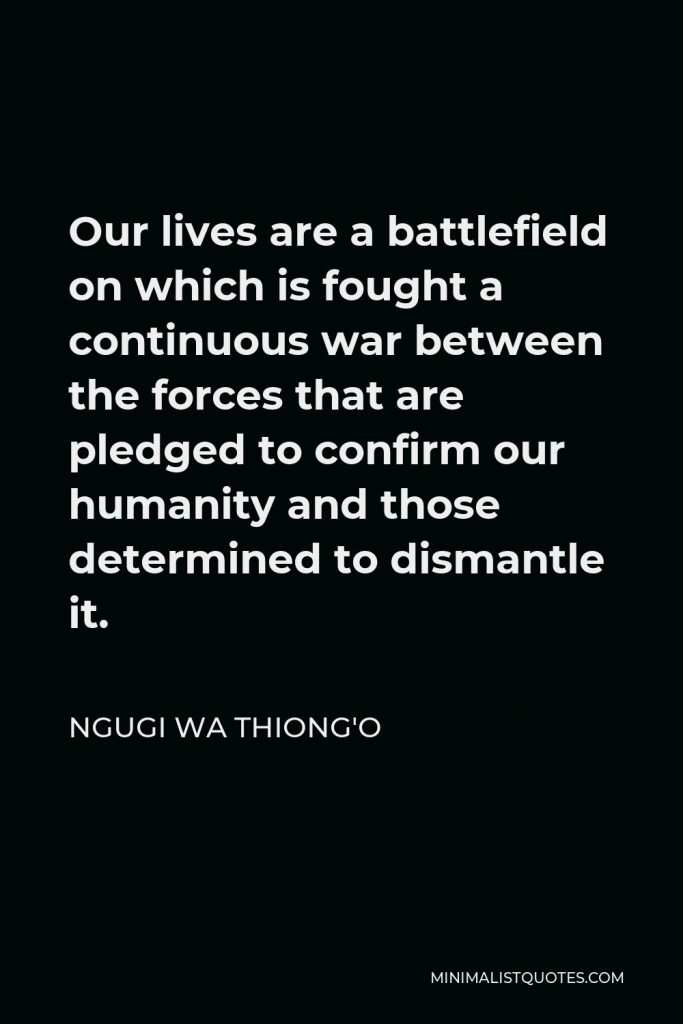

-





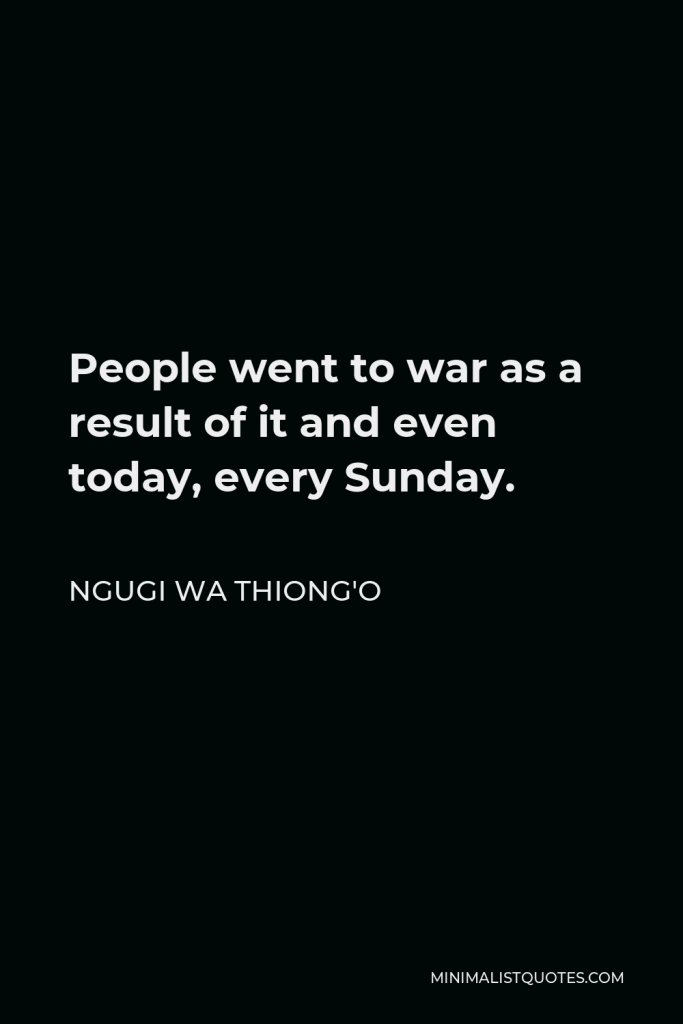

People went to war as a result of it and even today, every Sunday.
NGUGI WA THIONG'O -





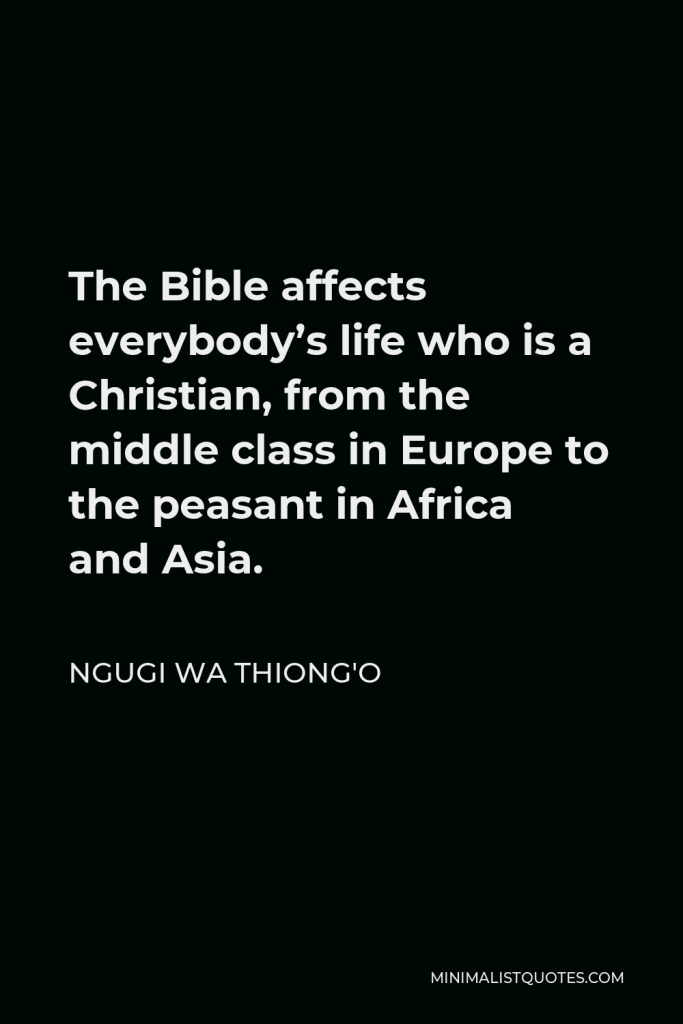

The Bible affects everybody’s life who is a Christian, from the middle class in Europe to the peasant in Africa and Asia.
NGUGI WA THIONG'O -





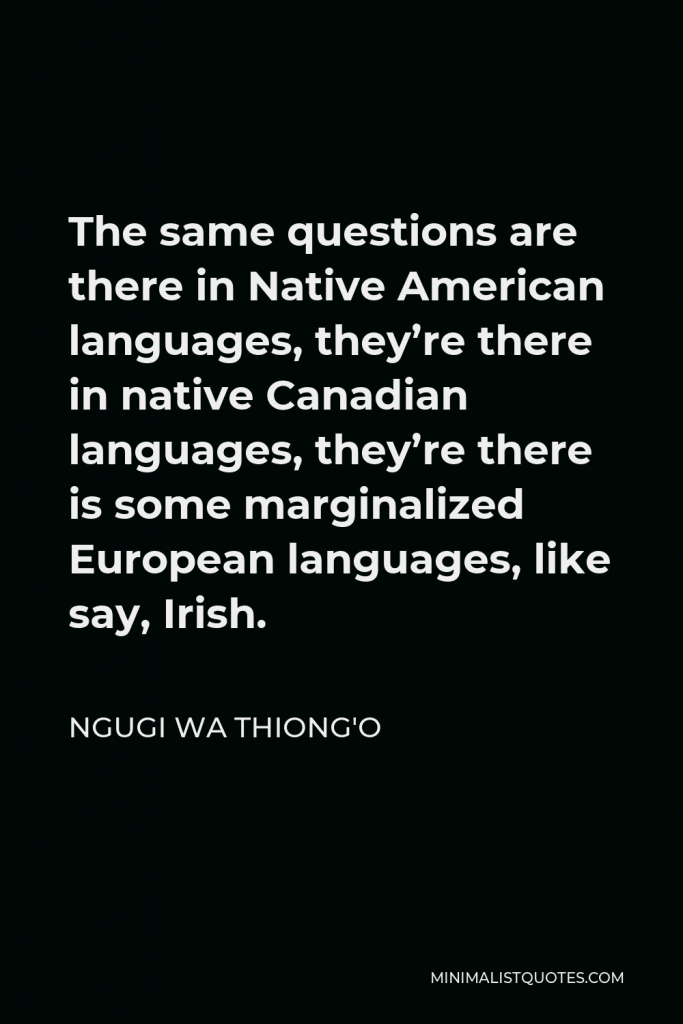

The same questions are there in Native American languages, they’re there in native Canadian languages, they’re there is some marginalized European languages, like say, Irish.
NGUGI WA THIONG'O -





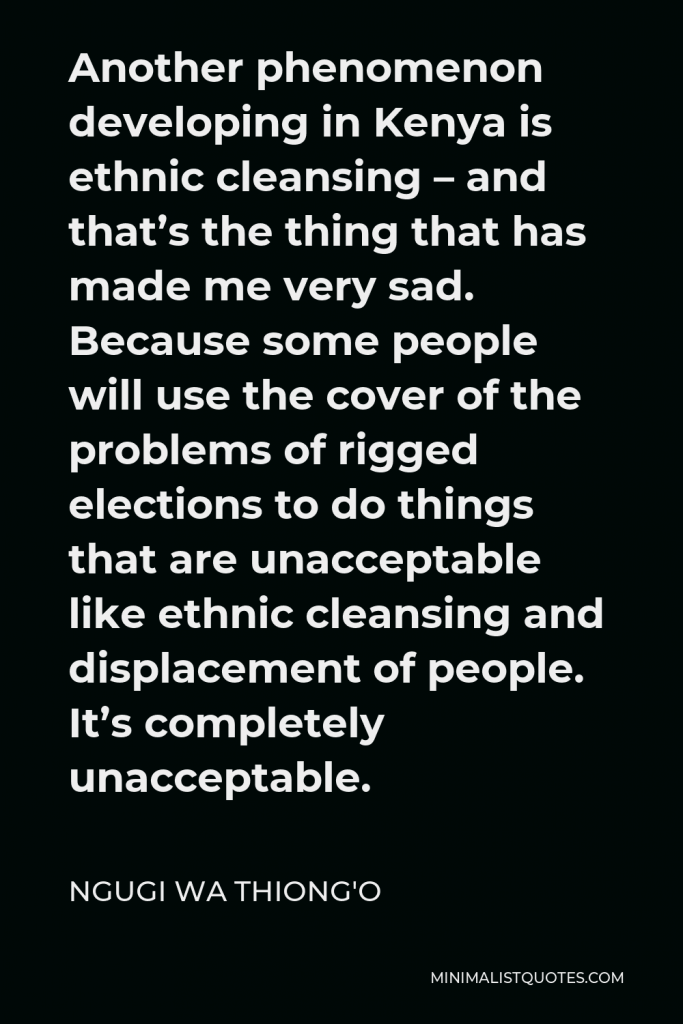

Another phenomenon developing in Kenya is ethnic cleansing – and that’s the thing that has made me very sad. Because some people will use the cover of the problems of rigged elections to do things that are unacceptable like ethnic cleansing and displacement of people. It’s completely unacceptable.
NGUGI WA THIONG'O -





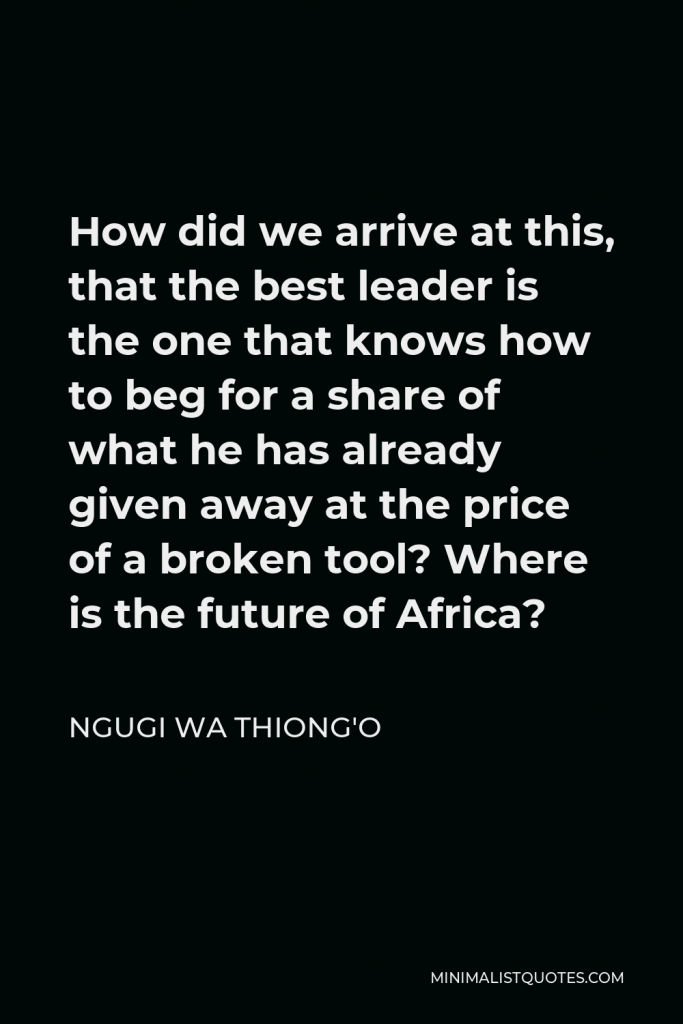

How did we arrive at this, that the best leader is the one that knows how to beg for a share of what he has already given away at the price of a broken tool? Where is the future of Africa?
NGUGI WA THIONG'O -





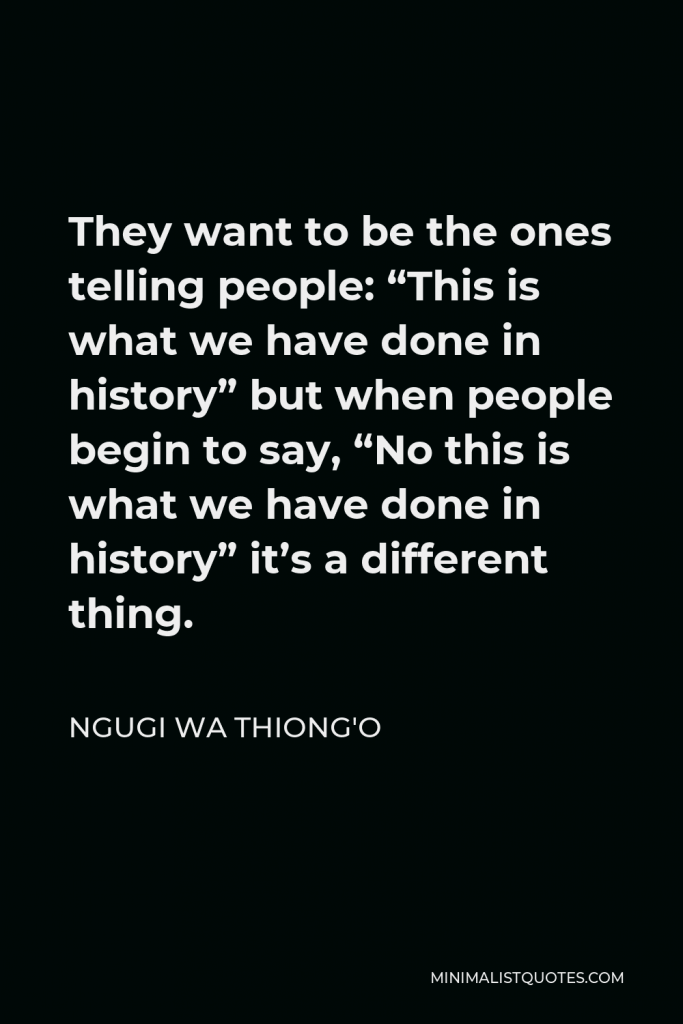

They want to be the ones telling people: “This is what we have done in history” but when people begin to say, “No this is what we have done in history” it’s a different thing.
NGUGI WA THIONG'O -





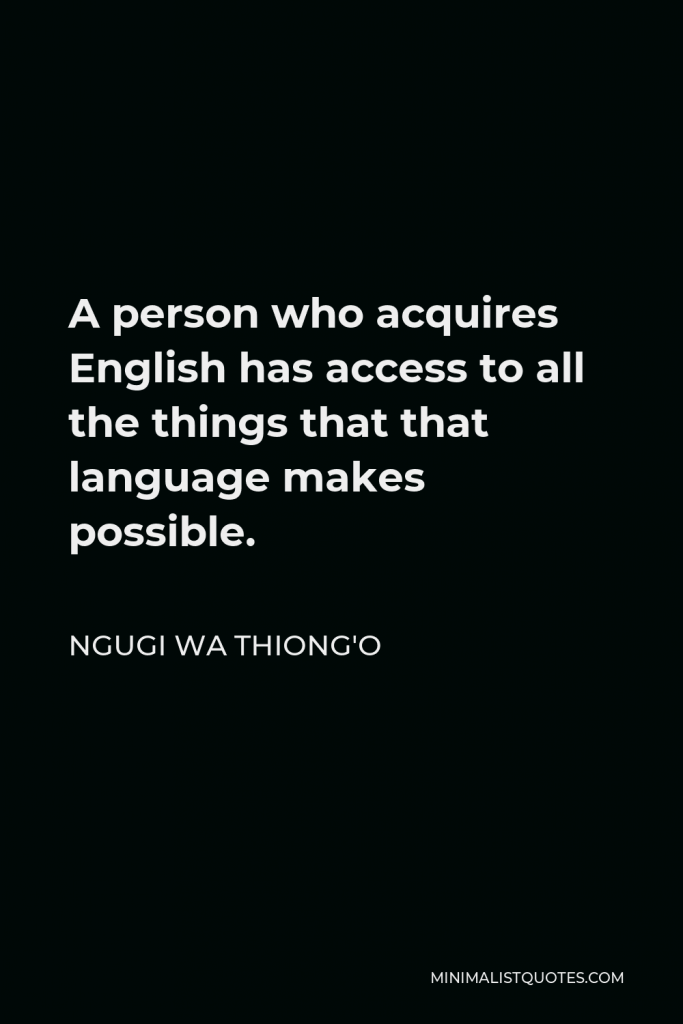

A person who acquires English has access to all the things that that language makes possible.
NGUGI WA THIONG'O -





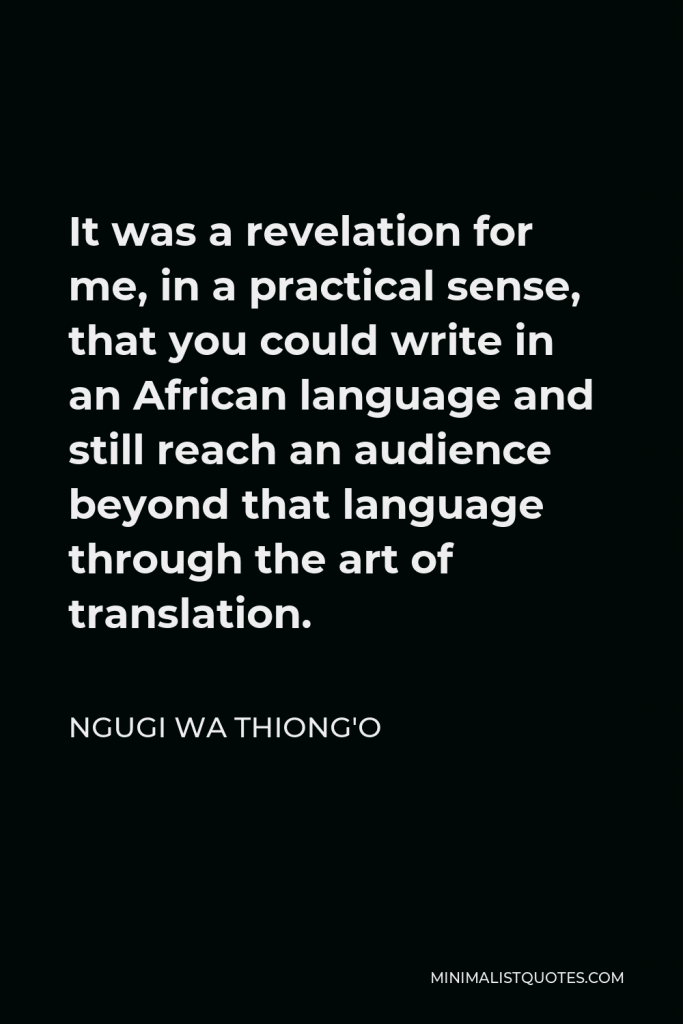

It was a revelation for me, in a practical sense, that you could write in an African language and still reach an audience beyond that language through the art of translation.
NGUGI WA THIONG'O -





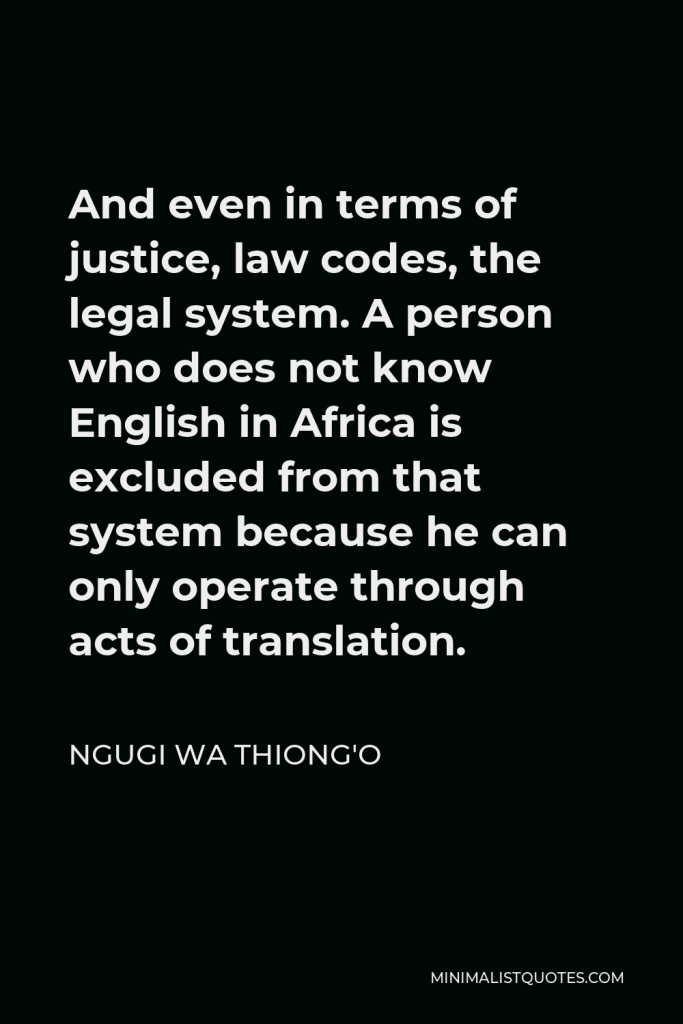

And even in terms of justice, law codes, the legal system. A person who does not know English in Africa is excluded from that system because he can only operate through acts of translation.
NGUGI WA THIONG'O -





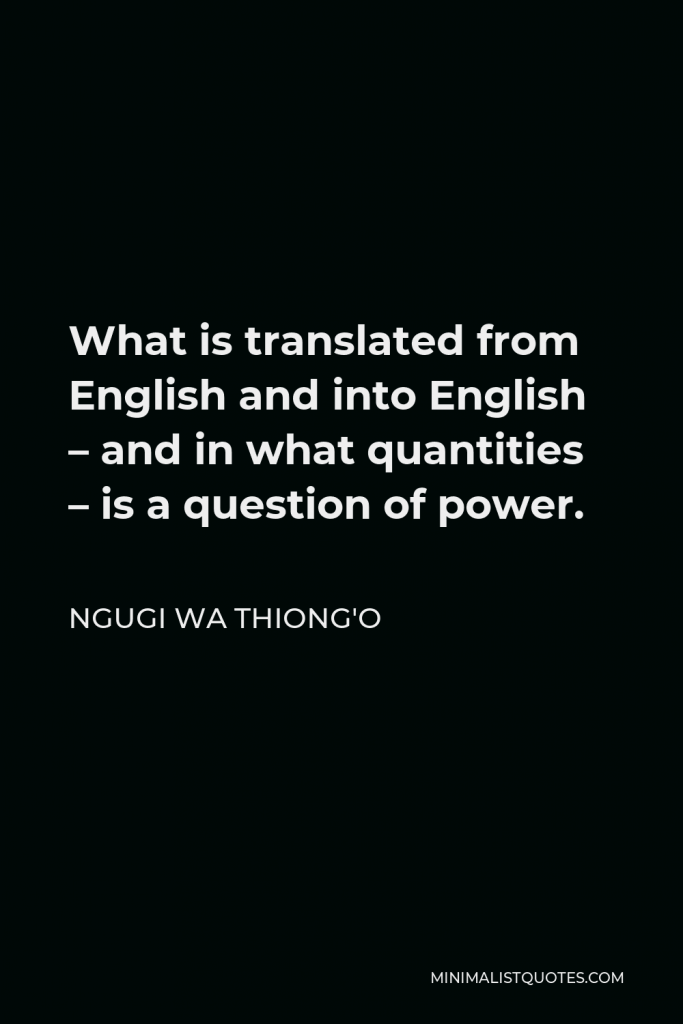

What is translated from English and into English – and in what quantities – is a question of power.
NGUGI WA THIONG'O -





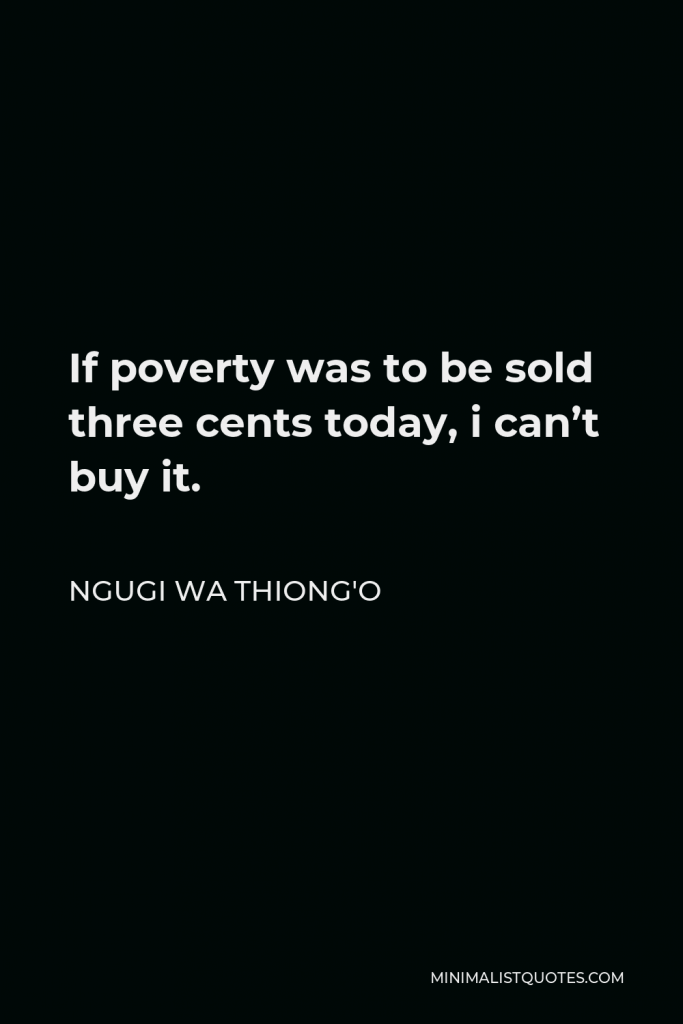

If poverty was to be sold three cents today, i can’t buy it.
NGUGI WA THIONG'O -





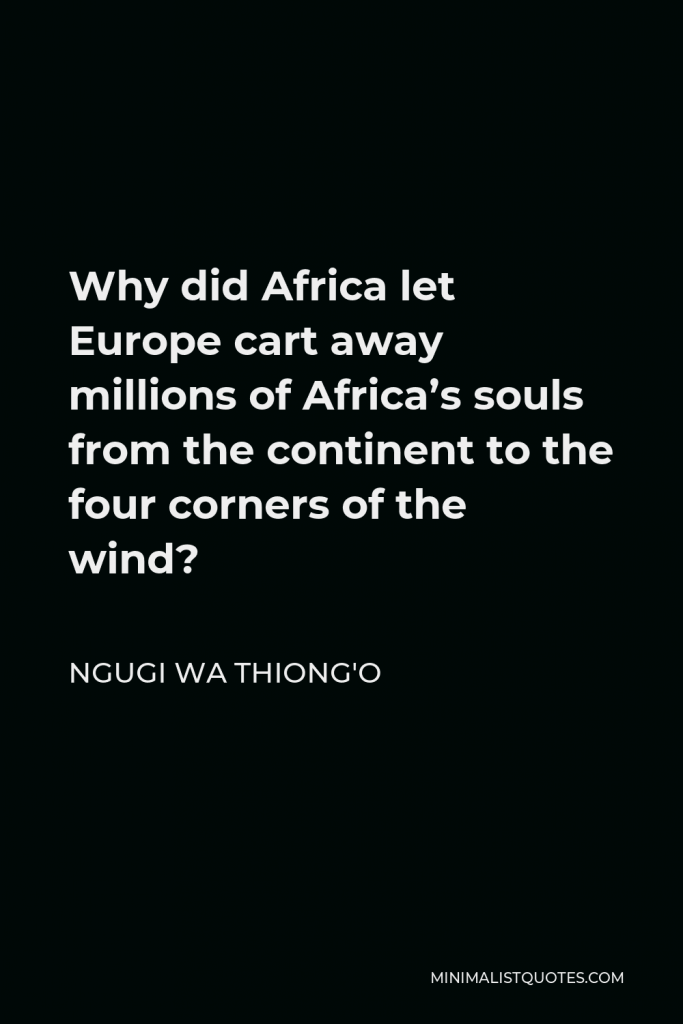

Why did Africa let Europe cart away millions of Africa’s souls from the continent to the four corners of the wind?
NGUGI WA THIONG'O -





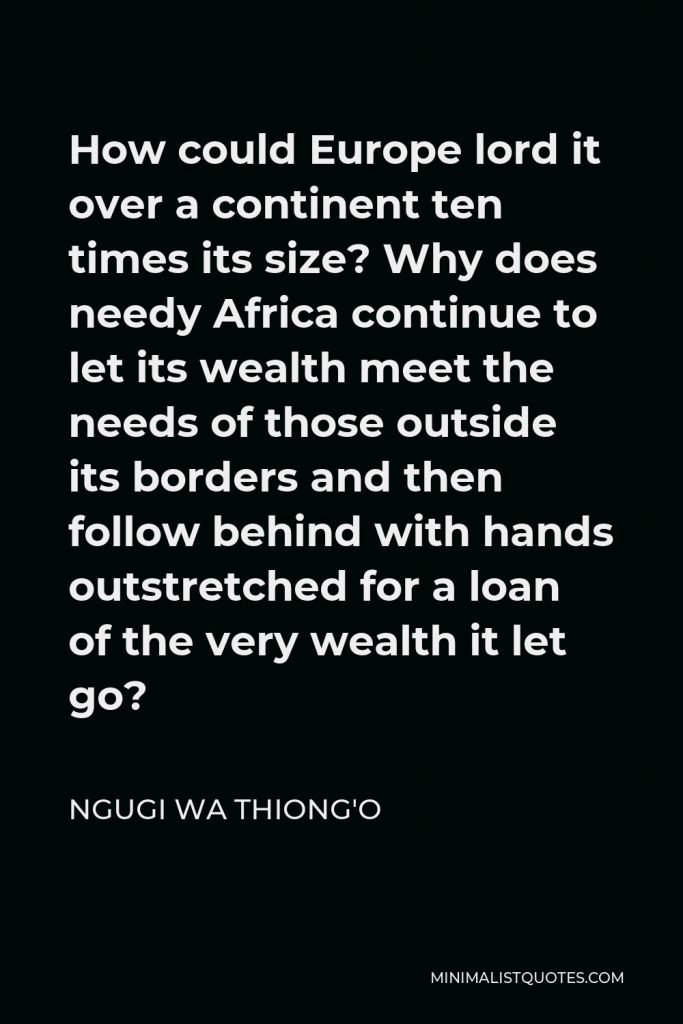

How could Europe lord it over a continent ten times its size? Why does needy Africa continue to let its wealth meet the needs of those outside its borders and then follow behind with hands outstretched for a loan of the very wealth it let go?
NGUGI WA THIONG'O -





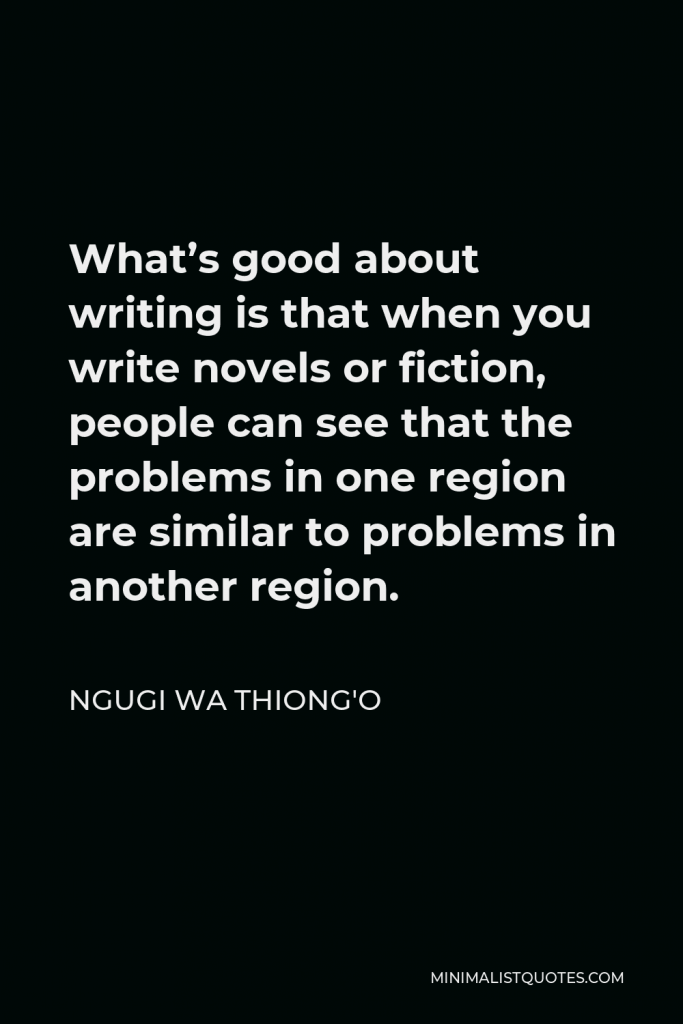

What’s good about writing is that when you write novels or fiction, people can see that the problems in one region are similar to problems in another region.
NGUGI WA THIONG'O -





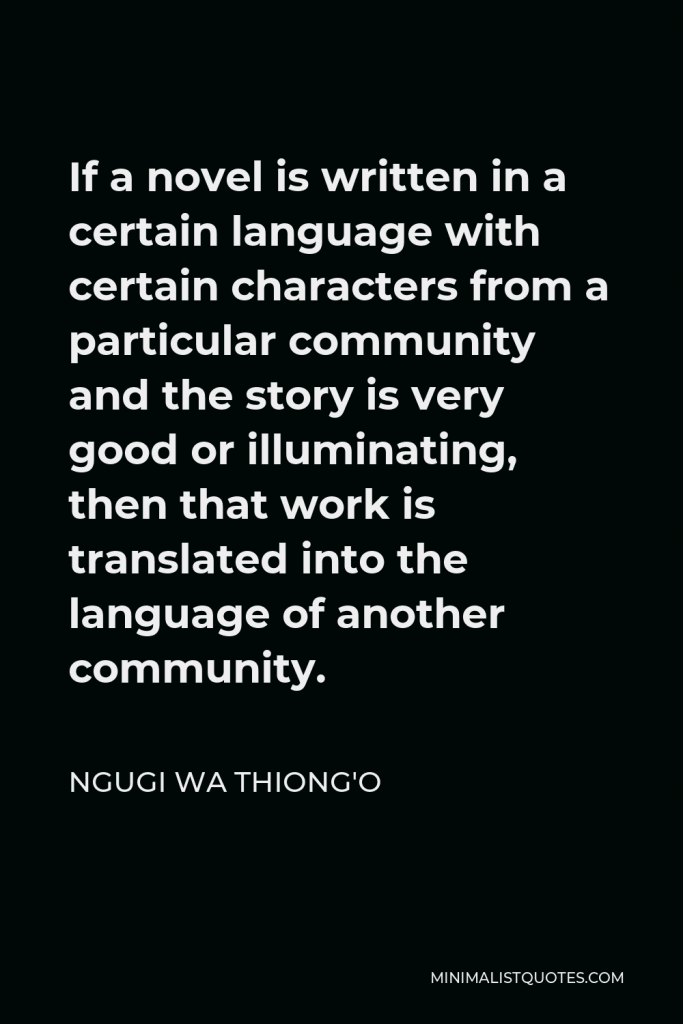

If a novel is written in a certain language with certain characters from a particular community and the story is very good or illuminating, then that work is translated into the language of another community.
NGUGI WA THIONG'O
